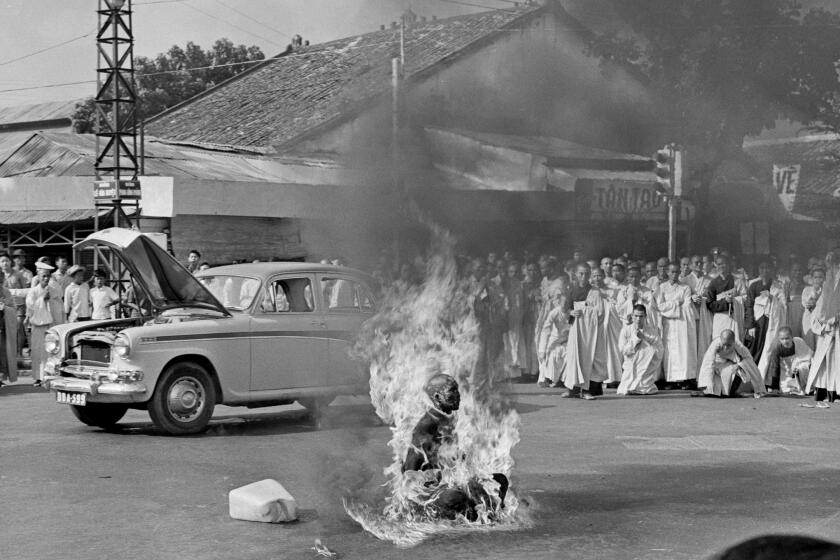Obamacare: New fight, old tactics

Last month, Americans took pride in celebrating the 50th anniversary of the March on Washington. Unfortunately, we are also revisiting a far darker episode in our history, a civil rights-era conflict that tells us much about the hurdles facing President Obama’s Affordable Care Act, the most ambitious piece of social legislation enacted in almost half a century.
That episode was the “massive resistance,” a policy pushed by a phalanx of Southern white politicians, journalists and local worthies who organized in the 1950s and early ‘60s when the courts, the federal government and the civil rights movement pressed for desegregation of public schools and the end of Jim Crow racism in American life. Rather than consent to the 1954 Supreme Court decision in Brown vs. Board of Education, which ordered an end to segregation in public schools, Southern governors and legislatures declared that they would refuse to implement the law and, if necessary, close schools. Their policy would later extend to efforts to shut down pools, parks and other public facilities that courts had ordered integrated.
In Congress, the Southern delegation stood firm against federal action in support of civil rights. Across the South billboards went up: “Impeach Earl Warren,” the chief justice who presided over the court’s 9-0 decision in the landmark 1954 case.
Today, the Republican opponents of Obamacare, and especially those hailing from the old Confederacy, have dusted off just about every tactic and ruse once deployed by Southern segregationists. House Republicans have taken 40 votes to repeal Obamacare. But the real battle over the fate of the law will take place at the state and local level.
And, as in the 1950s in the case of civil rights, the Supreme Court has inadvertently given opponents — this time of healthcare reform — a green light. In 1955, the high court declared that desegregation should proceed with “all deliberate speed,” which integration opponents interpreted as permission to drag their feet. In 2012, when the Roberts court ruled that states could reject the large expansion of Medicaid called for in the original Affordable Care Act, virtually every Republican legislature and governor in the South did just that, spurning the chance to enroll hundreds of thousands of their residents in the new federal program.
When Florida Republican Gov. Rick Scott sought to expand the low-income insurance program, tea party Republicans called him a “Benedict Arnold” and the state legislature rejected his proposal. Across the South, nearly half of all those denied the new Medicaid coverage are Latinos, African Americans and other people of color.
Just as hostile local officeholders half a century ago thwarted voting rights and the integration of schools and public facilities, so too are many governors and the health officials they have appointed doing everything they can to stop the implementation of the Obamacare health insurance exchanges this fall. Because most Republican-controlled states have refused to establish these online marketplaces, which will enable millions of individuals to select a standardized and subsidized health insurance plan, the federal government has reluctantly begun to set up its own state-level exchanges in those states. Those in opposition to the new law will undoubtedly denounce those actions as a Washington power grab.
But even more pernicious has been the actual sabotage of key provisions in the healthcare reform law. “Let me tell you what we’re doing,” bragged Georgia Insurance Commissioner Ralph Hudgens to a crowd of fellow Republicans in August. “Everything in our power to be an obstructionist.”
One of their methods is to try to cripple the work of “navigator” organizations and volunteers that will begin this fall. These groups and people are expected to play a crucial role in guiding the uninsured, many of whom speak languages other than English, through the sometimes complex process of signing up for the health insurance that fits their income level and family needs. Their work is vital because unless tens of millions of heretofore uninsured are signed up, the logic of universal coverage — which means that the healthy subsidize the old and sick — will be severely compromised.
The majority of these navigators are local, civic-minded people, many of whom are health professionals, who know how transformative it will be to have a near-universal healthcare system for the episodically employed and uninsured people they come in contact with daily. Although subsidized with some federal funding, the navigators face obstacles similar to the ones that confronted the civil rights activists and voter registration volunteers of half a century ago.
In Missouri and Ohio and throughout the South, state legislatures have tried to hamstring their work, investigating their funding and imposing new rules on what they can tell the uninsured. In Georgia, for example, Hudgens wants the navigators to pass the same licensing test as insurance agents, whose work is vastly different and who earn a commission on each policy they sell.
All this is reminiscent of the barriers Southern voter registrars once put in the way of African Americans who wanted to vote. Some of those would-be voters, for example, had to recite from memory passages from the Constitution or explain a complex piece of legislation. Civil right workers, even those with Southern accents, were called “outside agitators.”
Last month I attended a meeting in Santa Barbara packed with more than 50 health professionals and civic organization leaders, many ready to sign up as navigators in Santa Barbara and Ventura counties. Their task will be difficult even in Obamacare-friendly California, where a staggering 6.7 million uninsured people may need help in signing up for insurance in the new health benefit exchange or enrolling in Medi-Cal.
Like-minded men and women in Texas, Georgia and across the South face even greater obstacles. They are truly the civil rights workers of our day whose dedication and hope will help transform the insecurity of millions into a set of healthcare rights and thus crack the massive resistance still faced by so many of the poor and uninsured.
Nelson Lichtenstein teaches history at UC Santa Barbara, where he directs the Center for the Study of Work, Labor and Democracy.
More to Read
A cure for the common opinion
Get thought-provoking perspectives with our weekly newsletter.
You may occasionally receive promotional content from the Los Angeles Times.






